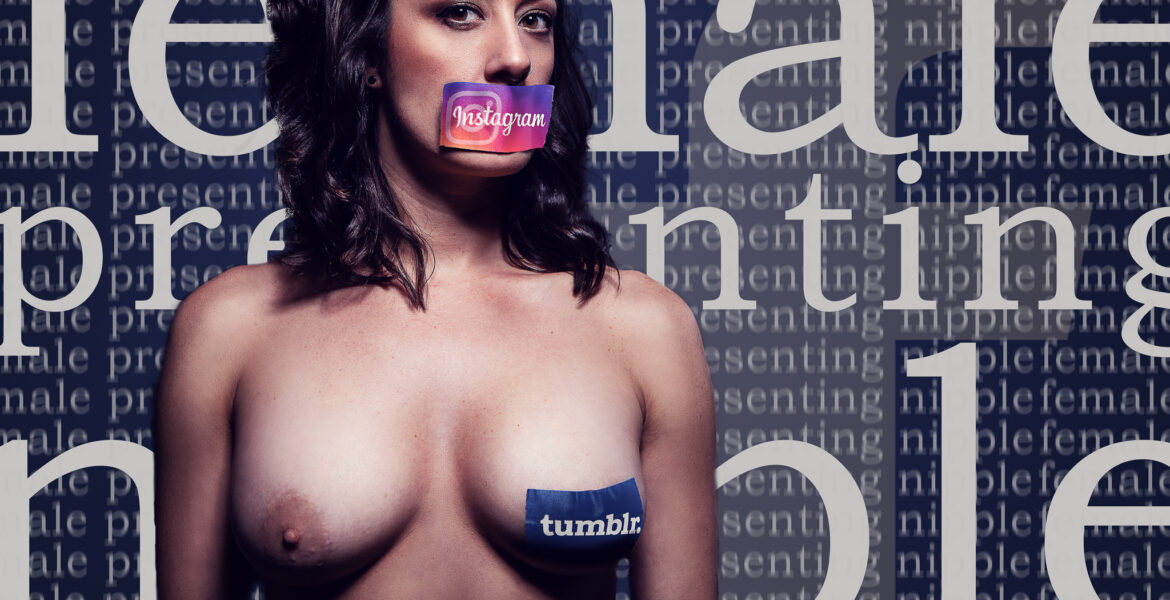Why?
The adult industry, erotic art, pornography, and sex work are disruptive. We are disruptive especially to social media companies who feed their coffers with advertising dollars.
If you’re paying attention to, much less paying for, an indulgence into the erotic sphere, you are not paying attention to the advertisements for bullshit that you don’t need or even want. Facebook, et al, are only interested in catering to advertisers who have mastered the art of manipulating you into thinking you “need” whatever it is that they’re selling. Most of these things that they’re telling you that you need you really don’t need at all, or even necessarily want. A year from now, if you buy it, you won’t even remember it, if whatever it is doesn’t break or fail because of its planned obsolescence.
Granted, there are many elements of the adult industry that are fraudulent and deceitful, but they’re simply taking lessons from the other barons of free-market capitalism. The fraudulent actors are used as the scapegoats as to why porn/erotica/sex-work is not allowed in the “mainstream.” Punishing all for the actions of a few.
The “mainstream” wants to keep you as distracted as it can from indulging in your sexual desires/fantasies because it knows that the sexual impulse is the strongest human impulse, second only to the survival impulse. Your sexual impulse is the hardest thing for an external element to control. And since there is only a finite amount of time and money for you to spend whilst scrolling your smartphone whilst trying to escape the monotony of your miserable day job, the free market vulture capitalists must capture as much of it as possible. Remember: the most important thing to shareholders—who nine times out of ten couldn’t give two shits about the product they’re investing in—is constant growth. If a company or product isn’t experiencing growth, its time to sell the shares and find the next growth opportunity.
So how can social media, without admitting outright discrimination, bar anything sexual in nature from being shared or “going viral” or garnering genuine interest from those masses that need to be advertised to? How can they be distracted from the most disruptive element in our society?
The answer is FOSTA & SESTA.
If you don’t know what FOSTA & SESTA are, read THIS and THIS. These articles explain it in much better terms than I can. In summary, though they were intended to combat sex trafficking and non-consensual sex work, they do nothing but broaden existing laws with obscurity and bring legal sex work (like creating adult movies or photographs) into a realm of difficulty and uncertainty. Moreover, it makes large platforms like Facebook and Tumblr take sweeping actions of censorship—even though the things that they are censoring are not in any violation of sex trafficking or prostitution laws.
The only thing that FOSTA/SESTA did was push sex workers further into the shadows. Sex workers no longer have platforms on which they can screen potential clients, communicate with each other, or otherwise promote their work safely. Mind you: these are not trafficked persons; these are sex workers who do sex work by choice. This includes adult models, strippers, fetish providers, and other types of sex workers that are not involved in what is defined as prostitution. They provide a service to millions of people who seek outlets for their sexual desires, for a multitude of reasons—healthy outlets that involve and promote consent and safety.
Artists like myself and the women I work with are also suffering from the effects of FOSTA/SESTA due to the overreaching actions that the big-tech companies have taken in response to these two pieces of legislation. Even though we are creating art and visual media as opposed to “physical” services, the tech industry considers our work sex work as well.
You, the consumer, are also a victim of this. You are being forced into the shadows as well. We have all become marginalized. We, purveyors and patrons of all things erotic, are a marginalized community. We are being suppressed and discriminated upon. And I’m even going to go as far to say that our constitutional and civil rights are being violated. That goes for both creators of erotic content and consumers of it.
Literally MILLIONS of people desire to consume what we create and distribute. So, by censoring us, ostracizing us, discriminating on us, these companies are doing the same to the regular folks who seek to see and consume what we create. They are depriving our fans (and us, for that matter) of liberty and the pursuit of happiness—the very foundation of the United States of America. They are preventing us from exercising our First Amendment right to express ourselves.
FOSTA/SESTA has enabled the tech companies—who are protected from discrimination and First Amendment lawsuits since they are “non-state actors”—to crack down on our ability to reach and inform the people who care about what we produce. This forces consumers to go to hotbeds of piracy like offshore registered Tube-sites that cost production houses thousands of dollars a month, millions per year. Who runs tube sites? At best, venture capitalists doing the same thing social media companies are doing: having a place to lure you in so they can collect advertising revenue. At worst: front companies for laundering dirty money. Think about the end-game of this: the more producers who lose money at creating the content you find on tube-sites, the less content gets created. Eventually it all dries up and the even the tube sites won’t be around.
This is exactly what the mainstream wants.
